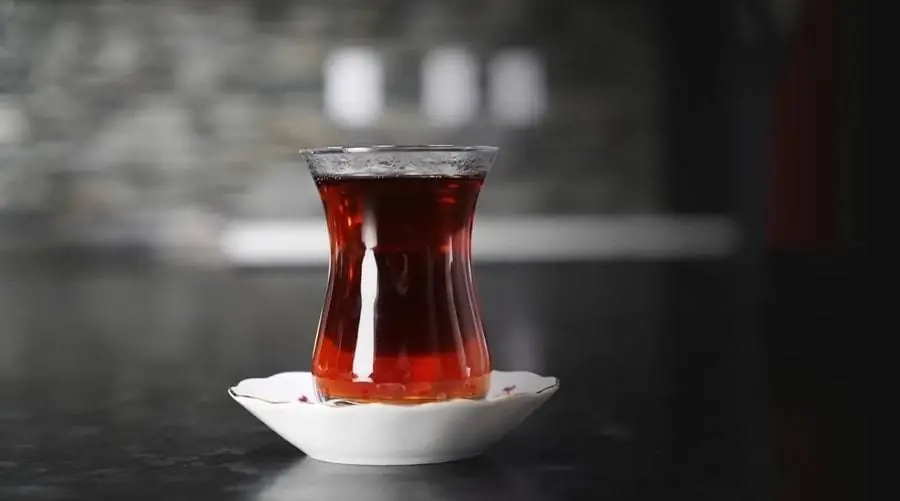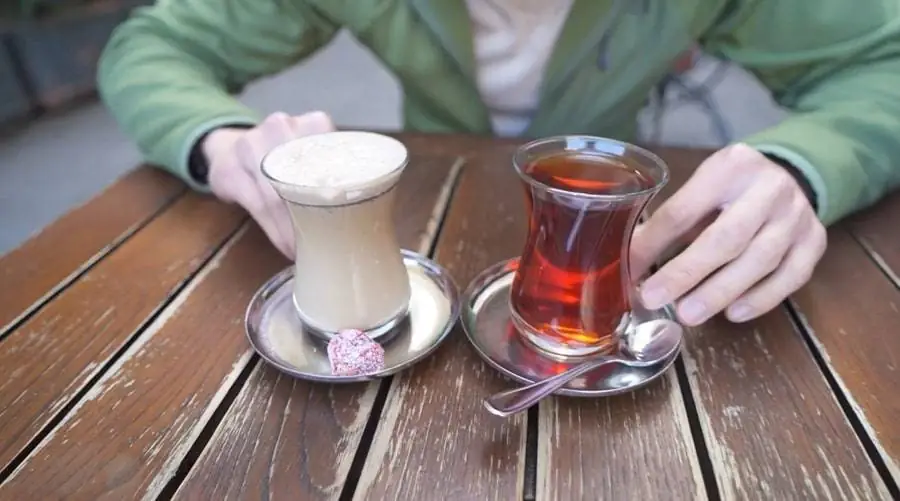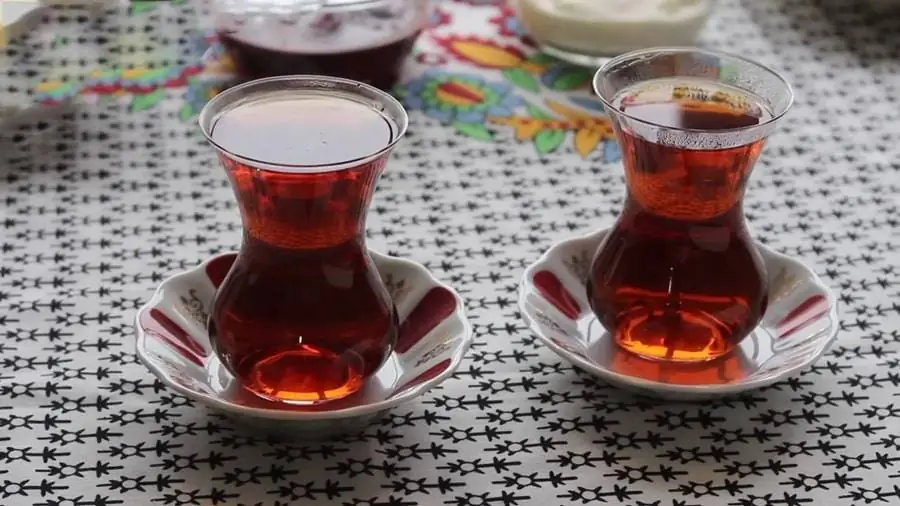Turkish tea, known locally as “çay,” holds a revered place in Turkish culture as a symbol of hospitality and camaraderie. Served hot and strong, Turkish tea in Istanbul is cherished for its robust flavor and aromatic qualities, making it a beloved beverage enjoyed throughout the country.
Turkish tea culture is deeply ingrained in the daily lives of Turks, with tea being consumed at all hours of the day. Whether it’s sipped during breakfast, shared over conversations with friends, or enjoyed as a comforting pick-me-up, tea plays a central role in social interactions and gatherings.
History and Tradition

Turkish Tea History
Turkish tea history dates back to the 19th century when tea cultivation began in the lush hillsides of Turkey’s Black Sea region. Introduced by traders from the Far East, tea quickly became a staple beverage in Turkish culture, evolving into a cherished tradition enjoyed by millions.
Tea Culture in Turkey
Tea culture in Turkey is deeply ingrained in daily life, with tea being a symbol of hospitality, friendship, and social interaction. Whether enjoyed in homes, workplaces, or bustling tea gardens, the ritual of sharing tea fosters connections and strengthens bonds among family and friends. You might like to check our best Istanbul tour to relish Turkish tea culture.
Turkish Tea Customs
Turkish tea customs dictate the proper preparation and serving of tea, adhering to centuries-old practices passed down through generations. From the careful brewing process to the artful pouring of tea into delicate glasses, each step is steeped in tradition and observed with reverence.
Brewing and Serving Turkish Tea
Brewing Turkish tea is an art form that requires precision and patience. Special double-stacked kettles, known as “çaydanlık,” are used to brew the tea, with water boiled in the lower kettle and loose tea leaves steeped in the upper one. The result is a strong and flavorful brew that is the hallmark of Turkish tea.
Serving Turkish Tea
Serving Turkish tea is a ceremonial affair, with great care taken to ensure the perfect presentation. Tea is poured into tulip-shaped glasses, with a slice of lemon or sugar cubes offered on the side for added flavor. The tea is often accompanied by small snacks or sweets, enhancing the overall tea-drinking experience.
Turkish Tea Equipment
Turkish tea brewing requires specialized equipment, including çaydanlık kettles, tulip-shaped tea glasses, and small trays for serving. These traditional tools play a vital role in preserving the authenticity and flavor of Turkish tea in Istanbul, ensuring a delightful and memorable tea-drinking experience.
Flavors and Varieties of Turkish Tea

Turkish Black Tea
Turkish black tea, known as “çay,” is the most popular variety and is enjoyed by millions of Turks every day. Brewed to perfection, Turkish black tea boasts a bold and robust flavor profile, with hints of earthiness and a rich, amber hue.
Herbal Teas in Turkey
In addition to black tea, Turkey is home to a variety of herbal teas, each prized for its unique flavors and health benefits. From soothing chamomile to invigorating sage, herbal teas offer a refreshing alternative to traditional Turkish black tea.
Fruit-Infused Turkish Teas
Fruit-infused Turkish teas are a delightful twist on traditional brews, combining the natural sweetness of fruits with the bold flavor of black tea. Popular varieties include apple tea, pomegranate tea, and rosehip tea, each offering a burst of flavor and aroma in every sip.
Cultural Significance and Rituals

Turkish Tea Rituals
Turkish tea rituals are an integral part of social interactions, serving as a symbol of hospitality and camaraderie. Whether shared during family gatherings, business meetings, or casual conversations, Turkish tea in Istanbul connections and strengthens relationships among Turks.
Hospitality in Turkish Culture
Hospitality is a cornerstone of Turkish culture, with tea playing a central role in welcoming guests and fostering goodwill. Offering tea to visitors is a time-honored tradition, symbolizing friendship, respect, and a desire to connect on a deeper level.
Turkish Tea Houses
Turkish tea houses, known as “çay evi,” are vibrant hubs of social activity where locals gather to relax, socialize, and enjoy a steaming cup of tea. These bustling establishments offer a glimpse into Turkish culture and provide a welcoming space for people from all walks of life to come together and share in the joys of tea-drinking.
Health Benefits of Turkish Tea
Turkish tea in Istanbul is not only a delicious beverage but also offers a myriad of health benefits. Rich in antioxidants and nutrients, tea promotes overall health and well-being, supporting immune function, aiding digestion, and reducing the risk of chronic disease.
Antioxidants in Turkish Tea
Turkish tea is packed with antioxidants, which help protect the body against oxidative stress and inflammation. These powerful compounds neutralize harmful free radicals and promote cellular health, contributing to longevity and vitality.
Digestive Benefits of Turkish Tea
Drinking Turkish tea after meals is a common practice in Turkey, as it is believed to aid digestion and alleviate digestive discomfort. The warm, soothing nature of tea helps relax the stomach muscles and promote healthy digestion, leaving you feeling satisfied and content after a hearty meal.

